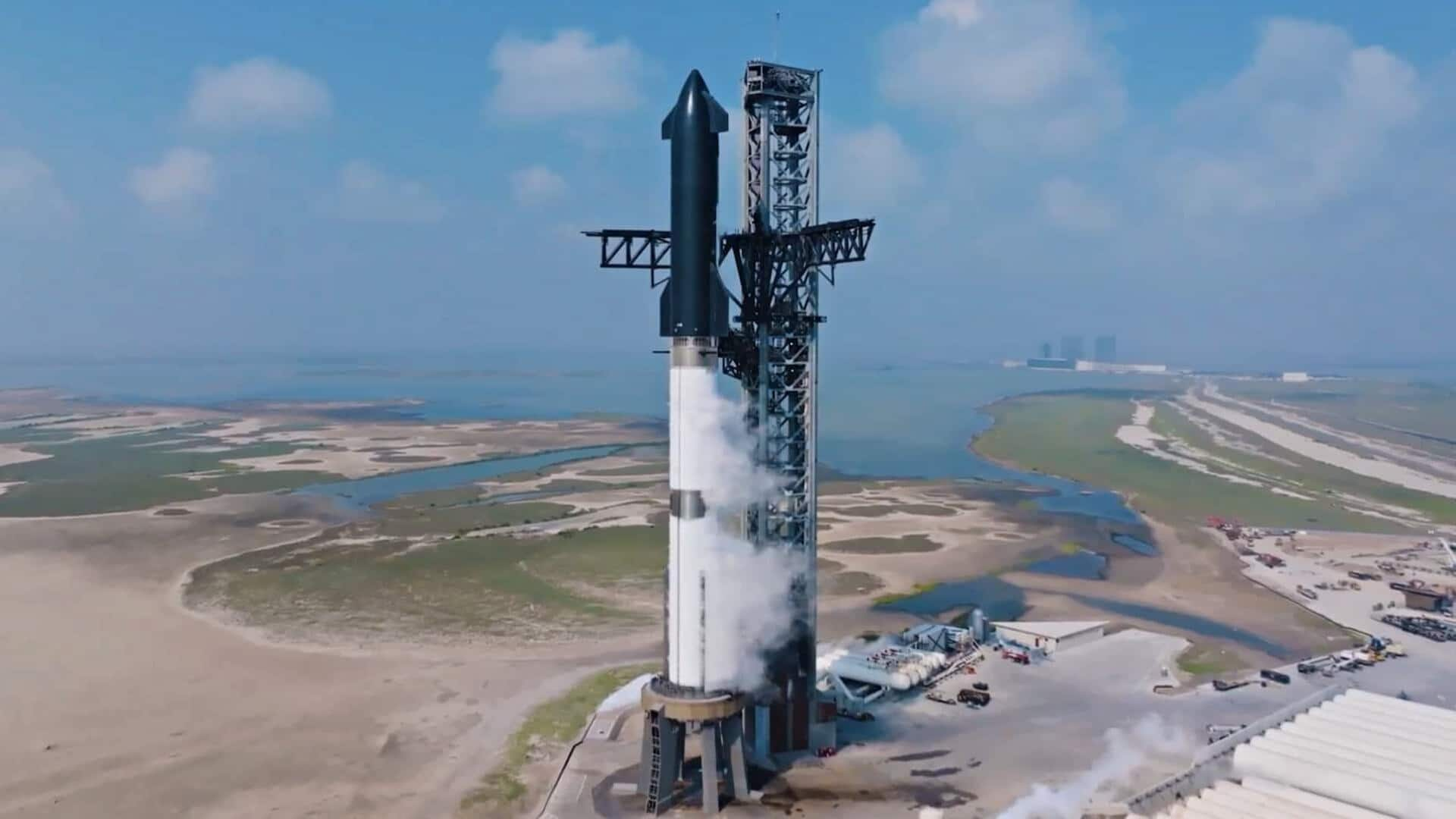
SpaceX cancels Starship launch minutes before lift off: Here's why
What's the story
SpaceX has canceled the 10th test flight of its Starship megarocket owing to ground system issues. The uncrewed mission was supposed to test the rocket's upper stage after recent attempts had ended in explosions. The latest setback comes as a blow to Elon Musk's ambitious plans for lunar and Martian exploration with this powerful vehicle.
Launch postponement
What was the scheduled time for launch
The Starship megarocket was scheduled to take off from SpaceX's Starbase in southern Texas at 6:30pm local time on Sunday. However, about 15 minutes before liftoff, SpaceX announced that the launch had been called off. "Standing down from today's 10th flight of Starship to allow time to troubleshoot an issue with ground systems," it said on X without providing further details.
Previous setbacks
Why is Starship's upper stage important?
The upper stage of the Starship rocket, which is designed to carry crew and cargo, has exploded in all three test flights conducted this year. Two failed tests resulted in debris raining down over Caribbean islands while the third one reached space before breaking apart. In June, another upper stage exploded during a "static fire" test on the ground.
Forward strategy
SpaceX has successfully caught lower stage booster 3 times
Despite the challenges, SpaceX is pressing ahead with its plans for Starship. The company has successfully caught the lower stage booster with giant "chopstick" launch tower arms three times. However, this 10th flight isn't planned to attempt that feat. After investigating a previous failed flight in May, SpaceX had said it would "intentionally stress the structural limits" of the upper stage in hopes of a successful return.
Mission importance
Musk has staked his company's future on Starship
The success of the 10th test flight is crucial for SpaceX's future plans. Musk has staked his company's future on Starship, intending to replace its current generation of rockets and spacecraft with this new system. Even if this test succeeds, there are still major technical challenges to overcome - from making the system fully reusable at low cost to proving it can refuel super-cooled propellant in orbit.